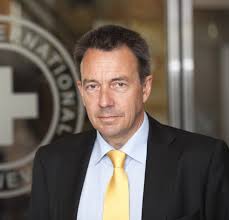The International Committee of the Red Cross has pledged to scale up its humanitarian support to Mozambique amid deteriorating crises triggered by armed conflict in the north of the country, natural disasters and COVID-19.
Speaking after meeting President Filipe Nyusi on Monday, ICRC chief Peter Maurer said his organisation would scale up its programmes in Mozambique in 2021, “with a focus on assistance, health and training programmes on the promotion of International Humanitarian Law for weapons bearers.”
“The people of Mozambique are today facing a triple humanitarian crisis with persistent threats due to climate change, the COVID-19 pandemic and armed conflict.
“We remain at the side of Mozambique in these challenging times and will scale up our support,” Maurer said.
More than 500,000 people have fled an upsurge of violence in the northern province of Cabo Delgado since the beginning of 2019.
Most of them have fled to urban settings such as the provincial capital Pemba, Montepuez and Metuge, putting additional strain on fragile communities and infrastructure, including medical services.
Maurer described Mozambican health facilities and staff as “double victims of Cyclone Kenneth and the violence which has seen the flight of healthcare workers and the destruction of more facilities, including those rehabilitated post-cyclone.”
An assessment by ICRC has revealed that 39 of the 55 health facilities in nine conflict-affected Cabo Delgado districts are non-operational and that 686 medical professionals have fled their places of work due to insecurity.
Maurer said the ICRC would in 2021 rehabilitate nine primary health facilities in Pemba as well as support hospitals in Montepuez and Pemba specialized in the treatment of trauma wounds.
It would also continue its support to the COVID-19 treatment centre in Pemba.
In addition, the ICRC plans to continue helping displaced and host communities locate their missing loved ones or establish contact with them, as well as with essential household items, seeds, tools and fishing kits to help them rebuild their lives.
JN/APA


